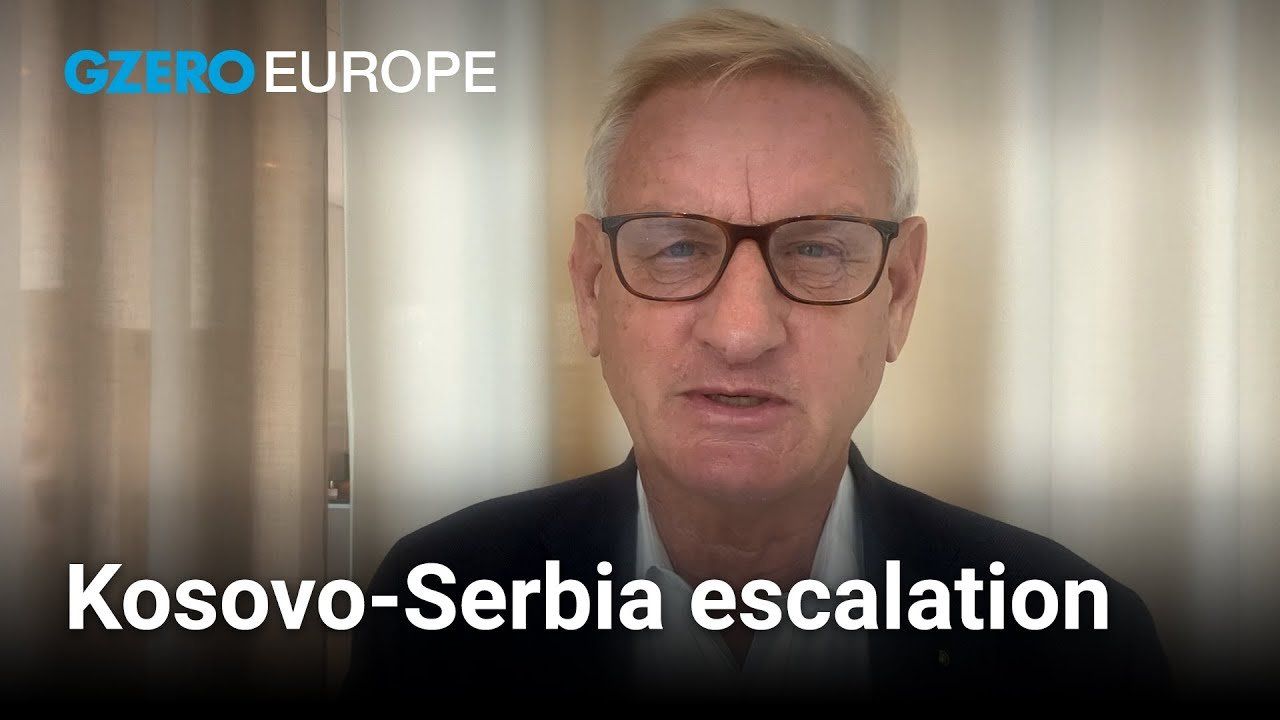
Carl Bildt, former prime minister of Sweden, shares his perspective on European politics - this week from Stockholm.
Are Serbia and Kosovo heading towards a confrontation?
It looks very bad. What happened in northern Kosovo the other day was distinctly bad. A collection of fairly well-armed and well-organized Serb thugs did an operation that was eventually beaten back by Kosovo police. It follows a cycle of escalation that was initiated on the Kosovo side, has to be said, last year, and has not been brought under control by rather intense diplomacy, both by the Europeans and by the Americans. At the moment, things look very bleak. This, of course, is damaging the EU integration prospects for both Serbia and Kosovo. Let's see what happens.
How can the EU react to what's happening in Nagorno-Karabakh?
Well, it was a very blatant military operation by the Azeris that sort of captured, de facto destroyed the autonomous functions of Nagorno-Karabakh. And it has encouraged, or forced, however you want to phrase it, practically all of the Armenians to evacuate in the direction of Armenia. It’s a huge political and humanitarian tragedy. How we can respond remains to be seen at the moment. It's very much a question of trying to alleviate the horrible humanitarian consequences.